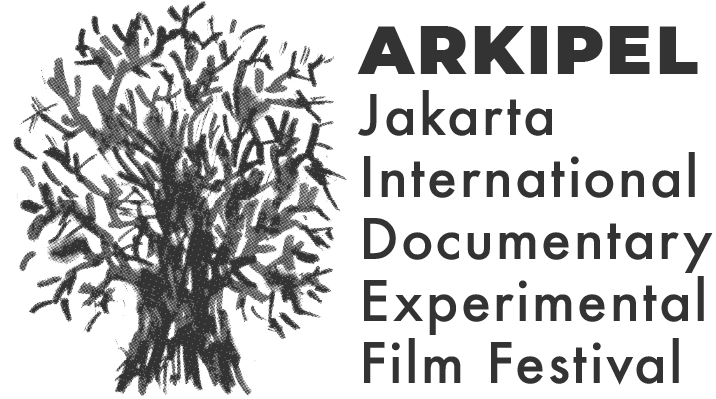Catatan Tentang “Sampah dan Orang Sisa-sisa”
Berangkat dari pengantar kuratorialnya, Ronny Agustinus menekankan pergulatan yang tak terelakan oleh semua negara di dunia dengan latar belakang ekonomis apa pun, yakni masalah sampah sebagai sisa-sisa kapitalisme industri. Pemimpin redaksi penerbit Marjin Kiri tersebut mempersembahkan dua filem dalam program kuratorialnya, Sampah dan Orang Sisa-sisa, di Kineforum pada hari Senin, 22 Agustus, 2016 pukul 13:00. Seperti pada program kuratorial ARKIPEL Ronny Agustinus pada tahun-tahun sebelumnya, Amerika Latin kembali diangkat sebagai latar tempat dan budaya.

Ilha Das Flores (1989) merupakan filem pembuka program kuratorial ini dengan durasi 13 menit. Hasil garapan Jorge Furtado, sutradara Brasil, filem ini menggunakan objek tomat sebagai media pengantar penonton menelusuri tahap-tahap kapitalis menuju apa yang disebut kurator sebagai residu lain dari kapitalisme industri, masyarakat yang hidup dari sampah. Ilha das flores memiliki arti harfiah “Pulau Bunga”, namun jauh dari makna denotasi namanya, nama tersebut mengandung sarkasme karena tempat tersebut tidak lebih dari sekedar tempat pembuangan sampah akhir.

Ronny Agustinus.
“Deus não existe”, begitulah kalimat pembuka dari filem yang ekuivalen dengan kalimat “Tuhan tidak ada”. Ilha das flores adalah tempat yang penuh keputusasaan tanpa secercah harapan. Filem ini mengandung rasa yang sangat pesimis, tidak ada antusiasme untuk mencari solusi. Narator yang sarkastik mengalienasikan dirinya dari manusia dengan kian menyebut manusia sebagai pihak ketiga dan dengan sengaja tidak ada usaha untuk menarik penonton sebagai bagian dari manusia yang tampak pada layar.

Hal di atas sangat kontras dengan filem kedua. Landfill Harmony (2015) adalah filem kedua yang diputar dengan durasi 101 menit. Disutradarai oleh sutradara asal Amerika Serikat, Brad Allgood, filem ini merupakan produksi Paraguai yang menunjukkan perjalanan sekelompok pemusik anak-anak. Hal yang membuat mereka berbeda ialah latar belakang mereka sebagai anak-anak dari para tukang sampah atau gunchero di sebuah kota tempat penampungan sampah bernama Cateura, serta pemanfaatan sampah yang didaur ulang sebagai alat musik.




Bertolak belakang dengan filem sebelumnya, Landfill Harmony bernada jauh lebih optimis sekaligus memberikan inspirasi. Pendekatan artistik yang terdapat dalam filem menunjukkan tahap yang berlawanan arah dari filem pertama. Ditampilkan secara kronologis, keterpurukan diangkat menjadi titik berangkat. Dipupuk oleh kerja keras dan semangat, hasil akhirnya adalah sesuatu relatif jauh lebih pantas dari sebelumnya. Pada awal filem, anak-anak tersebut tidak lebih dari pemusik amatir yang bahkan masih gemetar menyentuh alat-alat musik daur ulang, namun pada akhirnya mereka berhasil bersanding dengan pemusik internasional
Di hadapan dua belas penonton lainnya, Albert dari Forum Lenteng memberikan tanggapan, khususnya terhadap filem kedua. Bagi Albert, perspektif dari filem kedua cukup kapitalis. Pengakuan media-media besar seperti yang ditunjukkan dalam filem tentang eksistensi para tokoh adalah salah satu kode kapitalisme. Ronny Agustinus menyetujui pendapat tersebut dan demikianlah yang ingin ia tunjukkan, bahwa ada dua sikap dalam membahas wacana antroposen ini.
Antroposen sendiri merupakan istilah yang kerap digunakan kurator dan sesungguhnya merupakan istilah yang terhitung baru dan belum cukup populer. Antroposen merujuk pada kondisi dan situasi perubahan yang berlangsung di bumi yang kian dipengaruhi manusia. Melihat ke belakang, alam telah berjuta-juta tahun lamanya berperan dalam menentukan nasibnya, namun sejak tahun 1950-an, manusialah yang memiliki pengaruh ekstrem.
Mungkin memang kurang adil membandingkan kedua filem tersebut mengingat keadaan demografis Brasil dan Paraguai jauh berbeda. Sebagai negara terluas kelima di dunia, Brasil mengalami kesulitan dalam meluruskan sistemnya. Meskipun demikian, Ronny Agustinus memang menyajikan kedua filem yang kontras ini sebagai bahan pertimbangan dan refleksi.
Notes on “Garbage and Leftover People”
Departing from his curatorial introduction, Ronny Agustinus was emphasizing the inevitable struggle by all countries in the world with any economic background, which is the problem of garbage as the leftover of industrial capitalism. This chief editor of the Marjin Kiri publishers presented two films in the curatorial program, Garbage and Leftover People in Kineforum on Monday, August 22, 2016 at 13:00. As in the previous ARKIPEL curatorial program from Ronny Agustinus, Latin America is re-appointed as the background of place and culture.
Ilha Das Flores (1989) is the opening film of the curatorial program with duration of 13 minutes. This work of Jorge Furtado, Brazilian film director, uses tomato as medium of instruction for spectators to discover the stages of capitalism towards of what is called by the curator as other residues of industrial capitalism, the people who live off by the garbage. Ilha das Flores has a literal meaning “Island of Flowers”, but is far from its denotation, where the name contains sarcasm because the place is nothing more than a landfill.
“Deus não existe”, served as the opening sentence of the film which is equivalent to the phrase ” God does not exist “. Ilha das Flores is a place full of despair without a glimmer of hope. This film contains a very pessimistic sense, whereas no enthusiasm for a solution. The sarcastic narrator alienate himself from human beings by kept on referring human beings as a third party and deliberately made no attempt to attract the audience as part of a man who appeared on the screen.
The film above is in contrast to second film. Landfill Harmony (2015) is a second film with duration of 101 minutes. Directed by an American director, Brad Allgood, this film is a Paraguay production which shows the journey of a group of child musicians. The unique thing is their background as the children of dustmen or gunchero in a city of laystall named Cateura, as well as the use of recycled garbage as musical instrument.
In opposite to the film before, Landfill Harmony rang a much more optimistic tune as also inspiring. The artistic approach contained in the film reveals the stages in the opposite direction from the first film. Displayed in chronological order, the downturn was named as a starting point. Fostered by hard work and passion, the end result is something relatively far more acceptable than the previous. At the beginning of the film the children were no more than musician amateur who even still shaking when holding their recycled musical instruments, but in the end they managed to be coupled along with international musicians
In front of dozen other spectators, Albert of Forum Lenteng left a response, especially to the second film. For Albert, the perspective of the film is quite capitalist. The recognition of major media as shown in the film for the existence of the characters is one of the codes of capitalism. Ronny Agustinus approved this opinion and said that he wanted to show, that there are two attitudes in discussing this anthropocene discourse.
Anthropocene itself is a term used many times by the curator and is actually a relatively new term and not quite popular yet. Anthropocene refers to the change of conditions and situations that took place on Earth which is increasingly influenced by humans. Looking at the past, in millions of years, the nature has been playing a role in determining its fate, but since the 1950s, it is humans who have take the control in extremity.
Perhaps it is unfair to compare the two given films, by seeing the different demographic situation of Brazil and Paraguay. As the fifth largest country in the world, Brazil has difficulty in straightening its system. However, Ronny Agustinus is presenting two contrasting films for consideration and reflection.

